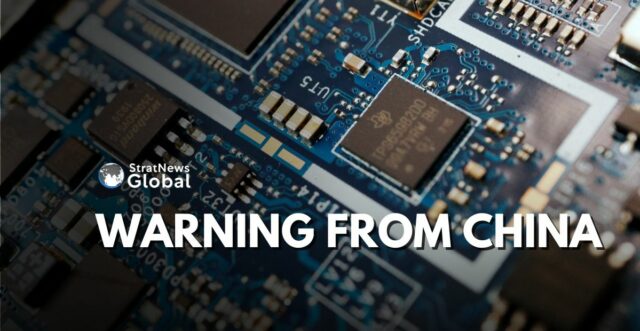China has warned of severe economic retaliation against Japan if it further restricts sales and servicing of chipmaking equipment to Chinese firms, Bloomberg News reported on Monday, citing people familiar with the matter.
The United States has been urging Japan to impose further restrictions on companies such as Tokyo Electron regarding the sale of advanced chipmaking equipment to China. This pressure is part of an ongoing effort to slow China’s semiconductor development. In these discussions, senior US officials have been collaborating with their Japanese counterparts to devise a plan to secure sufficient supplies of critical minerals. This focus on mineral supply has become particularly pressing since China introduced export restrictions on gallium, germanium, and graphite in 2023.
Toyota Motor 7203.T privately told Japanese officials that Beijing could react to the curbs by cutting Japan’s access to minerals required for automotive production, the report said.
Concerns about Toyota echo a past situation. In 2010, China briefly halted exports of rare earths to Japan following a maritime dispute in the East China Sea, an area claimed by both nations. This disruption unsettled Japan’s electronics industry and posed a risk to global supplies of high-power magnets, which were made in Japan using rare earths from China. Since then, Tokyo has attempted, with varying degrees of success, to lessen its dependence on Chinese rare earth imports.
Several Chinese officials had repeatedly outlined the position with their Japanese counterparts in recent meetings, the report added.
China’s foreign ministry said the country has always been firmly opposed to the “artificial disruption” of global production and supply chain stability, the politicisation of normal economic and trade cooperation, and scientific and technological blockades against China.
“China has always been committed to maintaining the safety and stability of the global production and supply chain, and has always implemented fair, reasonable and non-discriminatory export control measures,” spokeperson Mao Ning said, when asked for a comment at a regular news briefing.
The Biden administration is optimistic that they can address Tokyo’s concerns and finalize an agreement with Japan by the end of 2024, according to some sources.
However, there are more assertive measures in play: Behind the scenes, the US has been employing a tool known as the foreign direct product rule (FDPR). This rule enables Washington to regulate the sale of products globally if they incorporate even a minimal amount of American technology.
(With inputs from Reuters)





